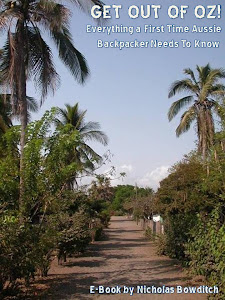 by Brian Williams
by Brian Williams
Brisbane Courier Mail
WORLD greenhouse gas emissions are rising faster and impacts on oceans and the atmosphere are worse than scientists thought.
A review of scientific papers by Graeme Pearman and the Climate Adaptation Science and Policy Initiative at the University of Melbourne has found worst-case scenarios produced by the Intergovernmental Panel on Climate Change may have been too conservative.
Emissions accelerating
Dr Pearman, former head of the CSIRO Division of Atmospheric Research, released a report yesterday showing carbon dioxide emissions are accelerating as is the melting of Arctic and Antarctic ice.
He told a Sydney conference organised by the Centre for Economic Development Australia that carbon dioxide emissions growth exceeded IPCC's most intensive scenarios.
Gases already at dangerous levels
Dr Pearman and the university were asked by the Climate Institute to review papers not included in the latest IPCC reports.
Dr Pearman said yesterday he did not want to scaremonger but governments were not reacting quickly enough to the situation.
"They talk about climate change being on the radar. But it's not, it's right outside the window," Dr Pearman said.
"It's already happening. It's a story we didn't really want to hear and we don't have decades to respond."
It comes as governments are due to discuss climate change at next month's United Nations climate conference in Bali.
Warming up by 0.8C per century
The report found average global warming was 0.8C over the past century, with recent warming growing at 0.2C per decade.
If continued, such a trend would lead to a temperature rise of about 3C by the end of this century relative to pre-industrial temperatures.
Latest observations show decreases in Arctic sea ice are occurring faster than any climate model projections.
Ice-free Arctic Ocean by 2050
Models had suggested that in a business-as-usual scenario, an ice-free Arctic Ocean might occur from 2050 to 2100 or beyond.
"But observation, if extrapolated on the basis of current trends, suggests a much earlier ice-free Arctic," the report says.
Warming in the Antarctic - one of the most rapidly warming regions of the planet - is about 0.5C per decade, compared to the global rate of 0.2C.
Sea level rises revised
IPCC projections may also have underestimated sea level rises.
One prediction is for a rise of 0.5m to 1.4m by 2100, much higher than the IPCC expects.
Projected warming of 2C to 3C "could yield sea level rise of several metres per century with eventual rise of tens of metres, enough to transform global coastlines".
Dr Pearman said, although people might see it as alarmist, warming and cooling had occurred regularly in the Earth's history.
An example of how radical change could be was that sea levels had changed 80m since the last ice age 25,000 years ago when ice covered nearly half the planet.




